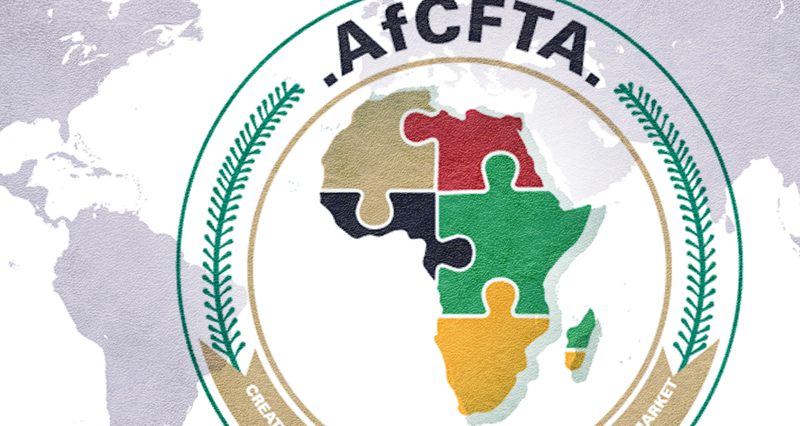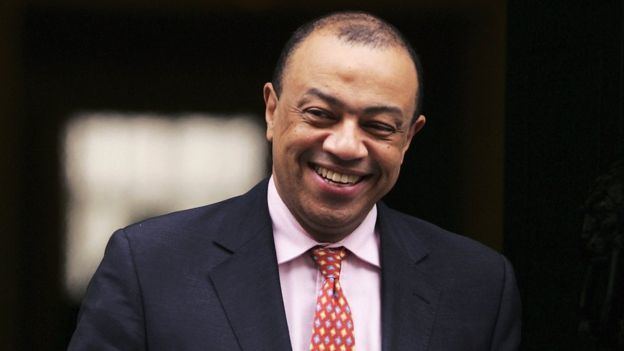As Ghana and the rest of Africa gear up for the Continental Free Trade Agreement (AfCTA) in 2021, leaders have been urged to prioritise two key issues.
First, implementing policies and reforms that will make the continent attractive to investors and second, dealing with the high cost of lending, impeding the growth of SMEs.
Former UK Cabinet Minister, Paul Yaw Boateng says the success of the Continental Free Trade Agreement Area will be based on reforms and strategies that will make the continent attracted to investors.
Speaking ahead of the Emerging Business Intelligence and Innovation (EBII) Africa Investment Risk and Compliance Summit, Paul Yaw Boateng explained that even though threats of the Coronavirus could be a challenge, the content must harness the opportunities that come with regional integration.
"Yes, the pandemic is a crisis, the world is in a recession. But it creates a unique opportunity to SMEs. So, we have to make sure there is a startup capital for them, a transparent and reliable regulatory environment that facilitates entrepreneurship and facilitates investment," he stated.
Even as the Continental Free Trade Agreement opens up for the free movement of goods and services, the emergence of a burgeoning entrepreneurial space questions Africa's preparedness to support SMEs expand to meet global competition. Already, there are concerns over the high cost of lending.

Ebenezer Onyeagwu, Managing Director and CEO at Zenith Bank PLC, said “the moment we have the free trade zone, I expect them to draw a framework that should guide various countries on the institutional support to give flesh and blood to SMEs. We need to see it as a completely African project to achieve an economy of scale."
The AfCFTA is expected to boost intra-African trade by 33% once full tariff liberalization is implemented, attracting additional intra-African investments and creating market opportunities to foster Africa’s industrialization through regional value chains, according to the report.
However, many of these gains could be undermined if rules of origin are not appropriately designed and enforced to support preferential trade liberalization.
Total trade from Africa to the rest of the world averaged US$760 billion in current prices in the period 2015-2017, compared with $481 billion from Oceania, $4,109 billion from Europe, $5,140 billion from America and $6,801 billion from Asia.
The share of exports from Africa to the rest of the world ranged from 80% to 90% in 2000-2017. The only other region with a higher export dependence on the rest of the world is Oceania.
EBII Africa Investment Risk and Compliance Summit
The theme of the conference is ‘Attracting and Sustaining Investments in Africa Post covid19 – Staying ahead of the compliance curve.’ Discussions during the summit will be focused on policy, business opportunities, and how to lower investment risks to expand the discourse and action in Africa.
Bringing together policymakers, businesses, financial institutions and other market participants, the forum provides an opportunity to move beyond “market-matching” conferences.
Real intel and knowledge to drive investments is the aim. EBII will also link investors with new sectors in Africa.
Latest Stories
-
Financing assurance secured from bilateral creditors to aid 2nd review funding for Ghana – IMF Africa head
9 mins -
Man who set himself on fire outside Trump’s Manhattan hush money trial dies
24 mins -
Fuel purchase issues have nothing to do with personal interest – Egypa Mercer
29 mins -
ISRQ2024: Theorose School wins Championship with 0.5 points, heads to Canada
35 mins -
Use your voice, talents, skills to advocate for positive change – UniMAC VC tells graduates
40 mins -
Livestream: Newsfile discusses ‘dumsor’, Ex-MASLOC CEO jail and Election 2024
53 mins -
Otumfuo STEM Festival launched to find problem-solvers, promote science education
1 hour -
Irene Logan ties the knot in colourful ceremony
1 hour -
Alliance with other parties, not a merger – Alan Kyerematen
2 hours -
Ghana’s Mohammed Fuseini scores in Randers 2-2 draw Odense BK
2 hours -
We are behind schedule on flood control programme – Oppong Nkrumah
2 hours -
Jennifer Kankam scores five against Tala’ea El Gaish in ZED FC’s big win in Egyptian league
2 hours -
You won’t start at Hearts of Oak – Charles Taylor tells Erling Haaland
2 hours -
People have lost patriotism, passion for the nation – Sulemana Braimah
3 hours -
You can’t use context of past elections to determine what happens in 2024 polls- Alan
3 hours

